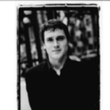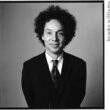Snoop: what your stuff says about you
Description
More Details
9780792759515
Also in this Series
Published Reviews
Booklist Review
Gosling, a psychology professor, shows us how the bits and pieces of our everyday lives can reveal more than we ever imagined. Did you know that the stuff you keep on your desk can tell a shrewd observer not just your likes and dislikes, but also your political leanings, your sexual interests, your fears, even your secret self-image (as opposed to the version of yourself you present to the world)? The author demonstrates how we can by using a combination of deductive reasoning, psychological insight, and plain ol' amateur sleuthing tell when someone is really a tidy person, or whether he just now cleaned up; whether an online chat partner is telling you who she really is, or who she wishes she were; whether someone's bookshelves are a reflection of his actual interests, or merely for show. The overall effect of these remarkable nuggets of insight is to provide a startling look at how much time and effort we spend to create a public version of ourselves and how easily that facade can be stripped away.--Pitt, David Copyright 2008 Booklist
Library Journal Review
Gosling's (psychology, Univ. of Texas) first book will captivate those who like the CBS drama Criminal Minds or the works of Sir Arthur Conan Doyle. In it, he examines how we use space--be it a dorm room, a house, a desk, or an office cubicle--to project as well as to protect our identities. Gosling contends that all humans leave behind "psychological footprints" and "behavioral residue" in their abodes. Throughout, he uses the "Big Five" model of personality, often remembered by the mnemonic OCEAN--Openness, Conscientiousness, Extraversion, Agreeableness, and Neuroticism--as his interpretive framework. Upon finishing this book, readers will surely pay more attention to their and others' cars, tattoos, posters, MP3 playlists, and books for what they can intentionally or unintentionally reveal about the psyche. Gosling's work, reminiscent of Martha Stout's The Sociopath Next Door in its vivid, true-to-life portraits of people and places, is a unique blend of scholarly research and accessible vignettes. Expect future books from this young scholar, whose storytelling skills prove he's capable of bridging the gap between ivory-tower dwellers and street denizens. Recommended for academic as well as public libraries.--C. Brian Smith, Arlington Heights Memorial Lib., IL (c) Copyright 2010. Library Journals LLC, a wholly owned subsidiary of Media Source, Inc. No redistribution permitted.
Booklist Reviews
Gosling, a psychology professor, shows us how the bits and pieces of our everyday lives can reveal more than we ever imagined. Did you know that the stuff you keep on your desk can tell a shrewd observer not just your likes and dislikes, but also your political leanings, your sexual interests, your fears, even your secret self-image (as opposed to the version of yourself you present to the world)? The author demonstrates how we can—by using a combination of deductive reasoning, psychological insight, and plain ol' amateur sleuthing— tell when someone is really a tidy person, or whether he just now cleaned up; whether an online chat partner is telling you who she really is, or who she wishes she were; whether someone's bookshelves are a reflection of his actual interests, or merely for show. The overall effect of these remarkable nuggets of insight is to provide a startling look at how much time and effort we spend to create a public version of ourselves and how easily that facade can be stripped away. Copyright 2008 Booklist Reviews.
Library Journal Reviews
Gosling's (psychology, Univ. of Texas) first book will captivate those who like the CBS drama Criminal Minds or the works of Sir Arthur Conan Doyle. In it, he examines how we use space—be it a dorm room, a house, a desk, or an office cubicle—to project as well as to protect our identities. Gosling contends that all humans leave behind "psychological footprints" and "behavioral residue" in their abodes. Throughout, he uses the "Big Five" model of personality, often remembered by the mnemonic OCEAN —Openness, Conscientiousness, Extraversion, Agreeableness, and Neuroticism—as his interpretive framework. Upon finishing this book, readers will surely pay more attention to their and others' cars, tattoos, posters, MP3 playlists, and books for what they can intentionally or unintentionally reveal about the psyche. Gosling's work, reminiscent of Martha Stout's The Sociopath Next Door in its vivid, true-to-life portraits of people and places, is a unique blend of scholarly research and accessible vignettes. Expect future books from this young scholar, whose storytelling skills prove he's capable of bridging the gap between ivory-tower dwellers and street denizens. Recommended for academic as well as public libraries.—C. Brian Smith, Arlington Heights Memorial Lib., IL
[Page 116]. Copyright 2008 Reed Business Information.



































